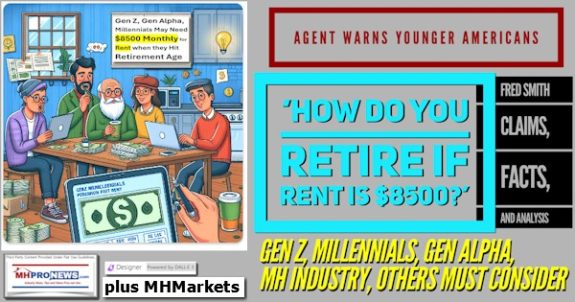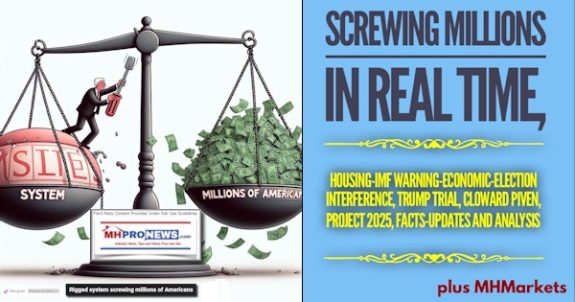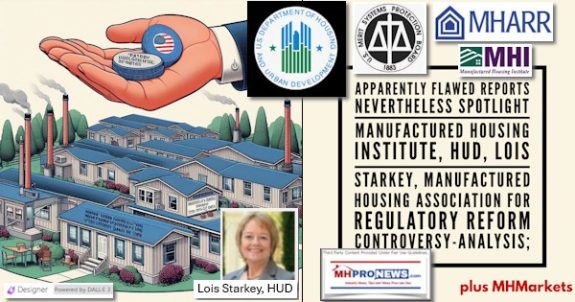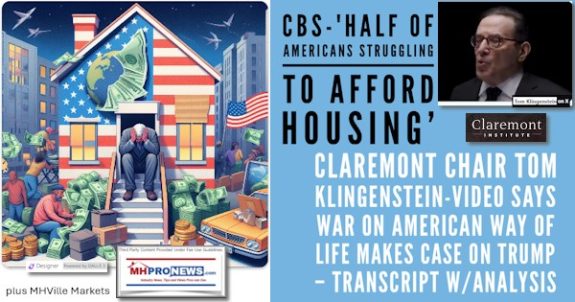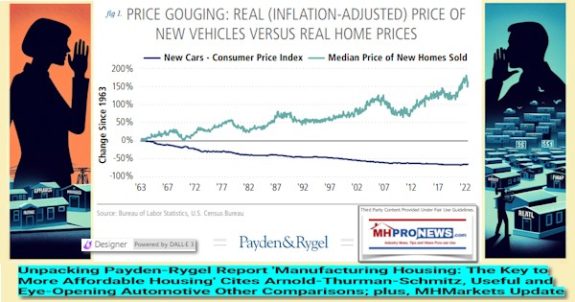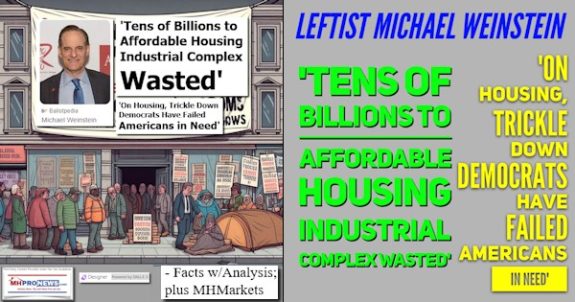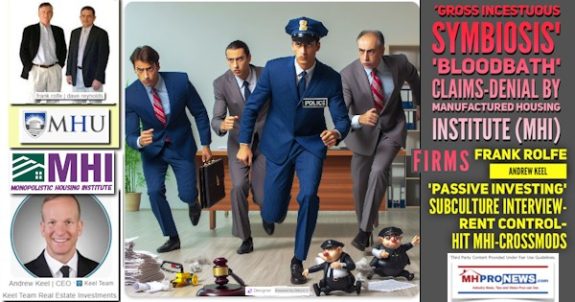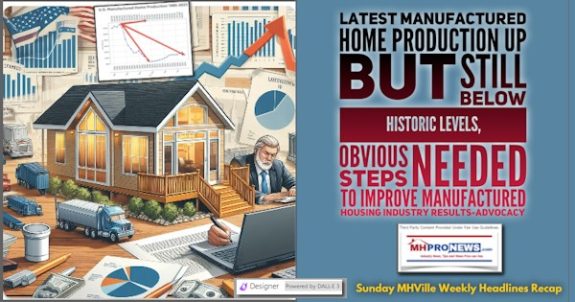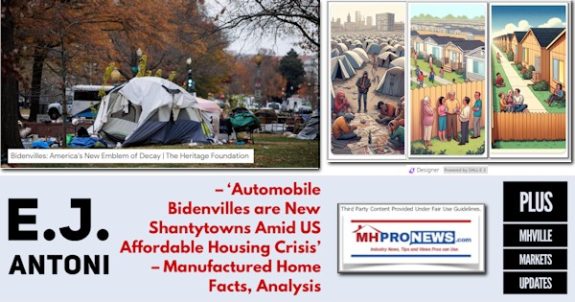Top National News
Mortgage Rates at All-Time Low
Long-term fixed mortgage rates fell to unprecedented lows this week, reports Freddie Mac. Average interest on 30-year loans hit 3.34 percent — the lowest since record keeping began in 1971 — down from 3.40 percent a week ago. The 15-year mortgage, meanwhile, dropped to 2.65 percent from 2.69 percent.
From “Mortgage Rates at All-Time Low”
Philly.com (11/16/12)
NAHB: Nationwide Housing Affordability Improves in Third Quarter
The National Association of Home Builders and Wells Fargo report that lower interest rates made housing more affordable even as residential prices bumped up in the third quarter. Nationwide, 74.1 percent of all homes sold during the period were within financial reach of families earning the U.S. median income of $65,000. That is up from 73.8 percent in the second quarter.
From “NAHB: Nationwide Housing Affordability Improves in Third Quarter”
Huntington News (11/15/12) Kinchen, David M.
Freddie Mac: Long-Term Housing Prognosis Is Promising
The long-term outlook for U.S. housing is favorable, reports Freddie Mac — as long as there is an understanding that the level of activity seen during the market’s peak is unsustainable and unrealistic. A more normal property market would mean, for instance, yearly growth in housing starts of about 1.7 million to 1.8 million units compared to 2.1 million in 2005 and annual home appreciation of roughly 3 percent versus 11 percent seven years ago.
From “Freddie Mac: Long-Term Housing Prognosis Is Promising”
National Mortgage Professional (11/14/12)
FEMA May Seek Flood Insurance Bailout After Sandy
The Federal Emergency Management Agency (FEMA) is likely to request a congressional bailout for the National Flood Insurance Program (NFIP) as losses from Superstorm Sandy are expected between $6 billion and $12 billion, more than its current borrowing capacity of $2.9 billion. NFIP still owes taxpayers about $18 billion from Hurricane Katrina losses in 2005. While Congress passed a package of NFIP reforms to improve the program’s finances, those changes are unlikely to have an impact for several years. Edward Connor, FEMA’s deputy associate administrator for federal insurance, said he expects the Homeland Security Department to seek an expansion of NFIP’s $20.7 billion borrowing cap from Congress.
From “FEMA May Seek Flood Insurance Bailout After Sandy”
Reuters (11/14/12) Lynch, Sarah N.; Berkowitz, Ben
Industry News
Clayton Homes Drives Conversions With YouTube TrueView Ads
Hoping to keep the manufactured and modular home builder “top of mind” among prospective buyers, Jim Greer of Clayton Homes said the company pumped up its marketing. Previously relying on phone calls as well as “batch and blast” direct mail and email campaigns, Clayton last year began incorporating YouTube and TrueView advertising. The goal was to remain in the forefront of house-shoppers’ minds throughout the decision-making and purchase process, which can last several months, while also providing them with quality content. YouTube proved an effective way to accomplish that objective. Links to Clayton videos on its YouTube channel were included in emails, such as one advertising the firm’s “double your tax refund” promotion. In-stream and in-search ads via TrueView resulted in more than 3,000 click-throughs on the company Web site and ultimately produced 1,000 lead form completions over a period of just five weeks. Moreover, the costs associated with the in-stream and in-search marketing were on par or lower to those of Clayton’s Google Search campaigns. “We were able to … deliver even more content to [potential buyers] via video, to help reinforce the decision that they were about to make,” said Greer.
From “Clayton Homes Drives Conversions With YouTube TrueView Ads”
Search Engine Watch (11/19/12) Jarboe, Greg
Sun Communities, Inc. Announces Closing of Acquisition
As expected, Southfield, Mich.-based Sun Communities, Inc. has closed on its previously announced purchase of four manufactured home communities including 1,996 sites. The real estate investment trust paid $71.1 million for the properties and also purchased associated manufactured homes, promissory notes, and installment sales contracts. In addition, it entered into management agreements for two other communities encompassing 1,598 manufactured home sites. The acquisition increases the REIT’s portfolio to 171 manufactured home and recreational vehicle communities that it owns or operates.
From “Sun Communities, Inc. Announces Closing of Acquisition”
MarketWatch (11/19/12)
Equity LifeStyle Properties Q3 FFO Rises
Equity LifeStyle Properties posted third-quarter funds from operations (FFO) of $53.2 million, a big jump from $33 million during the same three months of last year. Net income available to holders of common shares totaled $15 million, reversing last year’s net loss of $2.9 million. Revenues for the quarter also rose, coming in at $181.83 million compared to $164.04 million in last year’s third quarter.
From “Equity LifeStyle Properties Q3 FFO Rises”
RTTNews (11/15/12)
UMH Properties, Inc. Reports Third Quarter Earnings
UMH Properties Inc., a real estate investment trust that owns and operates 55 manufactured home communities in six states, posted improved financial results for the third quarter and nine months ended Sept. 30, 2012. Third-quarter funds from operations (FFO) came in at $2.1 million, or $0.13 per share, compared to $1.68 million, or $0.11 per share, during the same three months of 2011. For the period of January through September, FFO rose to $7.5 million this year from $6.5 million last year, with FFO per share bumping up to $0.47 from $0.46. UMH Properties President Samuel A. Landy noted that the REIT also registered higher sales and occupancy this year.
From “UMH Properties, Inc. Reports Third Quarter Earnings”
Sacramento Bee (11/13/12)
FEMA Sending Manufactured Housing to Sandy Zones
The Federal Emergency Management Agency (FEMA) is moving manufactured homes into areas of New York and New Jersey following the devastation caused by Superstorm Sandy. FEMA Administrator Craig Fugate said the agency has several hundred units in its inventory of emergency supplies and has started to transport them to areas hit hardest by the storm. Forty manufactured homes already have been sent from a staging area in Maryland to a staging area in New Jersey, but Fugate said more could follow once the agency gauges the demand. Since the storm, more than 317,000 people have registered with FEMA for financial help and more than 101,000 residents were determined to be eligible for temporary housing.
From “FEMA Sending Manufactured Housing to Sandy Zones”
Associated Press (11/08/12) Caldwell, Alicia A.
Sun Communities, Inc. Prices Public Offering of $75 Million of 7.125 Percent Series A Cumulative Redeemable Preferred Stock
Sun Communities, a real estate investment trust with a portfolio including an estimated 57,700 developed sites, has priced an underwritten registered public offering of 3 million shares of its 7.125 percent Series A Cumulative Redeemable Preferred Stock at $25 per unit. Closing on Nov. 14, the offering will be paid quarterly on or around Jan. 15, April 15, July 15, and Oct. 15 of each year, starting on Jan. 15, 2013. Net proceeds of the public offering, minus the underwriting discount and estimated offering expenses, are expected to be about $72.1 million — or $83 million if the underwriter’s option to purchase additional shares is fully exercised. The company planned to use the proceeds to fund its November 2012 acquisition of four manufactured home communities in Michigan.
From “Sun Communities, Inc. Prices Public Offering of $75 Million of 7.125 Percent Series A Cumulative Redeemable Preferred Stock”
4-Traders (11/06/12)
Middlebury Hardwood Sold to Patrick Ind. Using Credit Facility
Patrick Industries, which produces furniture for manufactured housing and interior components for recreational vehicles, has purchased the RV millwork and wood components company Middlebury Hardwoods. Patrick Industries’ CEO Todd Cleveland said the $20.3 million buyout of the Middlebury, Ind., firm “will help us in becoming an industry leader in the cabinet door market in the industries that we serve.” The deal, structured as an asset purchase, is the fourth in a series of strategic acquisitions by Patrick Industries. It recently established an $80 million credit facility, which was used to fund the Middlebury deal.
From “Middlebury Hardwood Sold to Patrick Ind. Using Credit Facility”
Woodworking Network (10/30/12) Esler, Bill
Sun Communities, Inc. Reports 2012 Third Quarter Results
Sun Communities, which owns and operates manufactured housing and recreational vehicle communities, posted its financial results for the third quarter. Notable developments for the three months include higher funds from operations (FFO), an increase in same-site net operating income (NOI), and a jump in home sales. FFO rose to $20.7 million, excluding transaction costs, from $18.5 million during the comparable period of last year; while NOI grew by 4.4 percent. Sun Communities sold a total of 395 homes during the quarter, up from 367 sold in the 2011 third quarter.
From “Sun Communities, Inc. Reports 2012 Third Quarter Results”
4-Traders (10/25/12)
Abstract News © Copyright 2012 INFORMATION, INC.
MHI News
CFPB, Dodd-Frank, and Housing Finance Updates
Senate Banking Committee Leaders Work to Move Manufactured Housing Legislation in Lame-Duck Session
Chairman of the Senate Banking, Housing and Urban Affairs Subcommittee on Financial Institutions and Consumer Protection Sherrod Brown (D-OH) and Ranking Member Bob Corker (R-TN) are seeking opportunities to move bipartisan legislation (S. 3484)—preserving access to manufactured housing financing outlets—during the congressional lame duck session that is predicted to last into late December.
The bill sponsors are reported to be developing a two-track approach to the reforms outlined in the measure. First, Sens. Brown and Corker will be formally commenting to the CFPB on the need to implement the reforms outlined in the bill (revision of HOEPA High-Cost Mortgage triggers and SAFE Act clarifications) at the regulatory level.
Second, Brown and Corker are exploring options to move the legislation through opportunities that may arise on the Senate floor. Since the measure will not be considered through the normal committee process due to a lack of available time, options to move the bill will be limited to either:
• Attaching the piece to legislation that may move through the Senate and also receive consideration in the House of Representatives. This option would require the consent of Senate leadership to include the measure as an amendment.
• Unanimous consent decree (also known as “hotlining”) where all 100 Senators would have to agree not to object to passage of the bill.
In the House of Representatives, Financial Services Committee leaders are said to be examining options to pass the House version of the bill (H.R. 3849)—introduced by Reps. Stephen Fincher (R-TN), Joe Donnelly (D-IN), and Gary Miller (D-CA)—through suspension of the rules. This method would require lack of objection on the part of House Democrats. Under this method, if an objection is raised, the measure must pass with a two-thirds majority vote.
FHA Audit to Reveal Funding Shortfall
It is reported that an annual audit of the Federal Housing Administration (FHA) scheduled for release on November 16th, will indicate the agency is facing losses of roughly $16.3 billion, which could necessitate a government bail out of the program. The agency, which has the ability to sustain itself through the increase of insurance premiums, currently guarantees more than $1 trillion in loans.
The audit is expected to reveal that FHA is still impacted by defaults and delinquencies on mortgages it insured between 2005 and 2008. While the agency is required to maintain a certain level of reserves to protect against losses, those reserves have diminished substantially over recent years and were not fully replenished.
The agency has enough operating capital to continue to function and pay off insurance claims. The decision to initiate a taxpayer-funded bailout of the agency is not expected to come until early 2013.
CFPB and FHFA Announce Development of Mortgage Database
On November 1st, the CFPB and Federal Housing Finance Agency (FHFA) announced they have begun the joint development of a national mortgage database. The agencies plan to build the database by matching a national sampling of credit bureau files on mortgage loans and payment histories with Home Mortgage Disclosure Act (HMDA) data, property valuation models, and other data files. For each mortgage included in the database, loan-level data will be collected including the borrower’s financial and credit profile, the mortgage product and terms, the property purchased/refinanced, and the loan’s ongoing payment history. For more information, click here.
Change in Financial Services and Banking Committee Leadership Slated for 2013
In 2013, the House Financial Services Committee and Senate Banking Committee will see changes in three out of four of its leadership positions, which could play a significant role in the course Congress takes in housing finance reform and Dodd-Frank/CFPB oversight and revision.
Current House Financial Services Committee Chairman Spencer Bachus (R-AL) is being forced to relinquish his position due to term limits imposed by the House Republican Caucus. Dallas-area Rep. Jeb Hensarling (R-TX) is his replacement. Hensarling, as Chairman of House Republican Caucus, is the fourth ranking member in House Republican leadership and is expected to aggressively work to roll-back the Dodd-Frank law and reorganize Fannie Mae and Freddie Mac. American Banker recently released a profile of Hensarling, which can be viewed byclicking here.
According to recent Census data, Texas is home to more than a dozen manufactured housing construction plants and nearly 750,000 manufactured homes comprising in excess of 7.5 percent of the state’s overall housing stock.
The retirement of House Financial Services Committee Ranking Member (and manufactured housing supporter) Barney Frank (D-MA) is expected to lead to the elevation of Los Angeles-area Rep. Maxine Waters (D-CA) to the lead Democratic position on the committee. Though a long advocate for affordable housing and a strong proponent of Dodd-Frank, it is unclear how receptive she will be to issues of key concern to the manufactured housing industry.
While Sen. Tim Johnson (D-SD) will remain as Chairman of the Banking Committee, Republican term limits will force Ranking Member Richard Shelby (R-AL) to step down as the panel’s senior Republican (Shelby will assume the Ranking Member position on the Senate Appropriations Committee).
Sen. Mike Crapo (R-ID) will assume the Banking Committee’s Ranking Member slot. Crapo is expected to adopt a different approach to Dodd-Frank reform. Instead of pushing for outright repeal of the law, Crapo is rumored to be developing broad-based technical corrections legislation that will seek to remake some of the more nebulous and controversial pieces of the Dodd-Frank Act. Idaho is home to several manufactured housing plants and nearly 10 percent of the state’s housing stock is made up of manufactured homes.
MHI Weighs in on Wave of CFPB Housing Finance Rules
Over the past few months, MHI has worked to represent the concerns of the manufactured housing industry in its comments to a number of proposed housing finance rule makings recently released by the Consumer Financial Protection Bureau (CFPB).
MHI is concerned that a number of new regulations currently being developed by the CFPB could further limit access to and the availability of credit in the already finance-constrained manufactured housing market. In addition to efforts to amend the Dodd-Frank law through legislative measures in the House and Senate (H.R. 3489 & S. 3484), MHI is actively advocating the industry’s concerns before key staff at the CFPB.
Below is a summary of selected rules MHI believes are of significant concern to the industry and a copy of comments submitted. MHI staff is working to ensure final rules adequately reflect the price sensitivities and unique challenges inherent to the manufactured housing market.
Appraisal Requirements for Higher-Risk Mortgages — Implements Dodd-Frank provisions that an appraisal (including a physical inspection of the interior of a home) be conducted on homes with mortgages considered “higher-risk.” Under the law, qualified mortgages (QMs) would be exempt from the “higher-risk mortgage” definition and thereby exempt from appraisal requirements. In general, if the loan is not a QM and has an APR that is 1.5 percentage points over prime, it is considered “higher-risk.” Based on input from MHI, the rules proposed by the CFPB and others would exempt any loan “solely secured by a residential structure,” such as manufactured homes, from the higher-risk mortgage definition. Based on the unique difficulties of appraising manufactured homes, MHI is working to expand this definition to include any manufactured home loan secured by real property.
• Click here to view the proposed rule.
• Click here to view MHI’s comments.
• Click here to view a summary of the appraisal proposed rule.
Equal Credit Opportunity Act Amendments— Requires creditors to provide consumers free copies of all written appraisals and valuations developed in connection with an application for a mortgage. The proposal would require creditors to notify applicants in writing of the right to receive a copy of each written appraisal or valuation at no additional cost. With respect to new manufactured homes, most lenders develop a maximum loan amount based on the manufactured home’s invoice price. In the proposed rule, the CFPB indicates that “valuations such as manufacturer’s invoices for mobile homes” would not be considered a “written appraisal or valuation” and would not have to be provided to consumers by lenders. In addition, publicly available valuation lists (such as published sales prices or mortgage amounts, tax assessments and retail price ranges) are not items considered that must be provided to consumers.
• Click here to view the proposed rule.
• Click here to view MHI’s comments.
HOEPA High-Cost Mortgage Revisions — Dodd-Frank expands the types of mortgages subject to the protections of the Home Ownership and Equity Protection Act (HOEPA); revises and expands the triggers for coverage under HOEPA; and imposes additional restrictions on HOEPA “high-cost mortgage” loans, including a pre-loan counseling requirement. Because the fixed costs (such as servicing and origination) and the lack of secondary market access, low balance manufactured home loans are particularly susceptible to classification as high-cost under the revised HOEPA guidelines. Due to liabilities associated with a high-cost/HOEPA mortgage, lenders will not originate these loans—potentially further stifling the availability of credit in the manufactured housing market. MHI has urged the CFPB to significantly broaden the APR and origination points thresholds that define HOEPA high-cost loans and ensure that fewer low-balance manufactured home loans are captured by triggers that currently do not fully account for the price pressures in the manufactured housing market.
• Click here to view the proposed rule.
• Click here to view MHI’s comments.
Loan Originator Compensation Rules —Implements changes made by Dodd-Frank to Regulation Z’s current loan originator compensation provisions, including a new additional restriction on the imposition of any upfront discount points, origination points, or fees to consumers under certain circumstances. The rule implements a very narrow exemption for manufactured housing retailers to “exclude employees of a manufactured home retailer who assists a consumer in obtaining or applying to obtain consumer credit, provided such employees do not take a consumer credit application, offer or negotiate terms of a consumer credit transaction, or advise a consumer on credit terms (including rates, fees, and other costs).” Unfortunately, the provision provides no meaningful relief to the industry.
MHI has maintained the position that the exemption for manufactured home retailers should be based upon the compensation received in the home sale. If the compensation received is no greater than what the retailer would have received in an all-cash transaction, then the individual retailer/seller should not be considered a loan originator. Unless clarifications are made, MHI is concerned that lenders may be forced to consider sales commissions earned by a manufactured home retailer as compensation and gain for purposes of calculating a loan’s APR or points and fees. This may cause the loan to fail the test for a “qualified mortgage” or a HOEPA/high-cost mortgage.
• Click here to view the proposed rule.
• Click here to view MHI’s comments.
RESPA & TILA Mortgage Servicing Guidelines – The rules implement Dodd-Frank provisions regarding mortgage loan servicing. Specifically, this proposal implements Dodd-Frank sections addressing initial rate adjustment notices for adjustable-rate mortgages (ARMs), periodic statements for residential mortgage loans, and prompt crediting of mortgage payments and response to requests for payoff amounts. The proposed rule would provide an exemption to small servicers—defined as those that service 1,000 or fewer mortgage loans and service only mortgage loans that they originated or own—for the periodic statement requirements.
• Click here to view the RESPA proposed rules.
• Click here to view the TILA proposed rules.
• Click here to view MHI’s comments.
• Click here to view a summary of the new servicing requirements.
Update on 2012 Election Results & End of the 112th Congress
By winning nearly every key swing state including Colorado, Ohio, Virginia and Wisconsin, President Obama was able to successfully hold off Governor Mitt Romney’s challenge and secure a second term. Additionally, given Democratic gains in the House and Senate, it is not widely anticipated that Obama will seek to strike a conciliatory mood with Republicans on fiscal issues or on issues related to a softening of Dodd-Frank.
MHI is pleased that key manufactured housing industry supporters Sen. Sherrod Brown (D-OH) and current Rep. Joe Donnelly (D-IN) were able to secure Senate victories. Rep. Donnelly, who is currently a sponsor of our House bill, H.R. 3849, successfully won the Senate seat in Indiana being vacated by Sen. Richard Lugar (R-IN).
In the House, both of our remaining bill sponsors, Reps. Stephen Fincher (R-TN) and Gary Miller (R-CA), were also re-elected. In total, the MHI-PAC distributed in excess of $126,000 to support 59 federal candidates. Of those candidates running in 2012 (excluding retiring members and Senators not currently in cycle), the MHI-PAC boasted a win percentage of 93 percent. Additionally, at least 33 of the 43 co-sponsors of H.R. 3849 have been re-elected to the House.
Looking forward, Congress returned to work last week and will stay in session until the Thanksgiving holiday. The House and Senate will then reconvene in December to complete work in time to adjourn prior to the Holidays. Issues expected to dominate the lame duck session, include:
• FY 2013 appropriations
• Extension of 2001 and 2003 tax cuts
• Sequestration
• Increase of debt ceiling
During the lame duck session, MHI will continue to work to pass our legislation (H.R. 3849 and S. 3484) reforming portions of the Dodd-Frank and SAFE Acts. The session could potentially offer opportunities to attach portions of these bills to larger measures moving through each chamber. During this time, MHI members are strongly urged to continue contacting their members of Congress to request they support either H.R. 3849 or S. 3484. For more information, click here to access the MHI Action Alert.
Manufactured Housing Industry Assists in Hurricane Sandy Response and Recovery
Hurricane Sandy devastated much of the Northeast declaring major disaster areas across four states. Yet times of great adversity bring out the best in people. Throughout the affected areas and the country, communities have come together to help with the recovery effort. Members of the manufactured housing industry from as far away as Georgia have reached out to assist with the disaster response. In New York alone, it is estimated that as many as 80,000 homes may be permanently displaced. As winter weather arrives, impacted communities are still in the initial stages of ensuring that disaster survivors are evacuated and sheltered safely and securely.
FEMA and state and local officials are reviewing damage assessments to determine approximately how many households will require temporary housing assistance and what type of temporary housing is most appropriate. Over the next several weeks, FEMA is likely to ask those manufactured home builders who are FEMA-approved contractors to begin producing temporary housing units. Industry members are working with FEMA officials to identify available sites for temporary emergency housing communities.
Disaster officials are providing financial assistance to survivors for rental shelter. States and affected counties are providing information on available rental homes and apartments. State manufactured housing associations have been asked to help identify available manufactured homes on retail sites that may be used as well as available sites in land lease communities that could be utilized for temporary housing.
Manufactured home retailers and land lease communities that suffered damage in the disaster may take advantage of a variety of state, federal, and local resources, including small business disaster housing loans, community development block grants, rural housing loan assistance, and FHA mortgage insurance for rehabilitation of land lease community homes.
The manufactured housing industry can play a key role in permanent housing replacement. Hurricane Katrina demonstrated that communities that are inclusive in decision-making and coordinated engagement – including manufactured housing communities – can successfully rebuild. Get involved now before the next disaster strikes! Here are a few ways you can help:
• Work with your state manufactured housing association to participate in state disaster planning and recovery efforts.
• Be part of the community planning process. Connect and collaborate with your local emergency planning group, Citizen Corps Council, or local emergency management agency.
• Contact your local news media about the benefits and advantages of using factory built housing for both residential and multifamily housing.
• Volunteer to support disaster efforts in your community. Volunteer and train with a Community Emergency Response Team, Medical Reserve Corps unit, and/or other Citizen Corps Partner Program or Affiliate organization.
• Join or start a preparedness project. Find an event or identify local resources, build a team, choose a project, set goals, and serve your community by improving the preparedness of your friends and neighbors.
• If you have services to provide, register as a FEMA vendor and take advantage of the numerous business opportunities that occur after a major disaster.
Click here for more information about disaster response and recovery resources.
Building America Advanced Envelope Design Project Advances
The Systems Building Research Alliance (SBRA) in cooperation with the Building America ARIES team will be sponsoring a full-day meeting on Thursday, November 29th in Harrisburg, PA where six leading insulation companies will present concepts for next generation, high performance wall systems for factory built homes.
The six companies—AFM Corporation, BASF, DOW, Johns Manville Saint Gobain (CertainTeed), and Owens Corning —have been working closely with an industry committee in developing their design approaches. The wall designs are intended to meet the very stringent requirements of industry energy standards slated for implementation in 2013.
4,382 New HUD-Code Homes Shipped in September 2012
In September 2012, 4,382 new manufactured homes were shipped, down 13.0 percent from September 2011. The trend varied by housing type with shipments of single section homes down by 26.4 percent compared with the same month last year, while shipments of the multi-section homes showed an increase.
In comparison with the previous year, 2012 recorded shipment increases every month from January through August. September marked the first month of a relative decline in shipments. Over the nine-month period, total industry shipments stands at 41,880 homes compared with 37,031 homes in 2011, a year-to-date increase of 13.1 percent. A total of 6,942 floors were shipped in the month, a decrease of 8.4 percent over September 2011.
The seasonally adjusted annual rate (SAAR) of shipments was 47,076 in September 2012, down 18.3 percent from the rate of 57,639 in August 2012. The SAAR corrects for normal seasonal variations in shipments and projects annual shipments based on the current monthly total.
The number of plants reporting production in September was 122 and the number of active corporations was 44, both unchanged from the prior month.







